




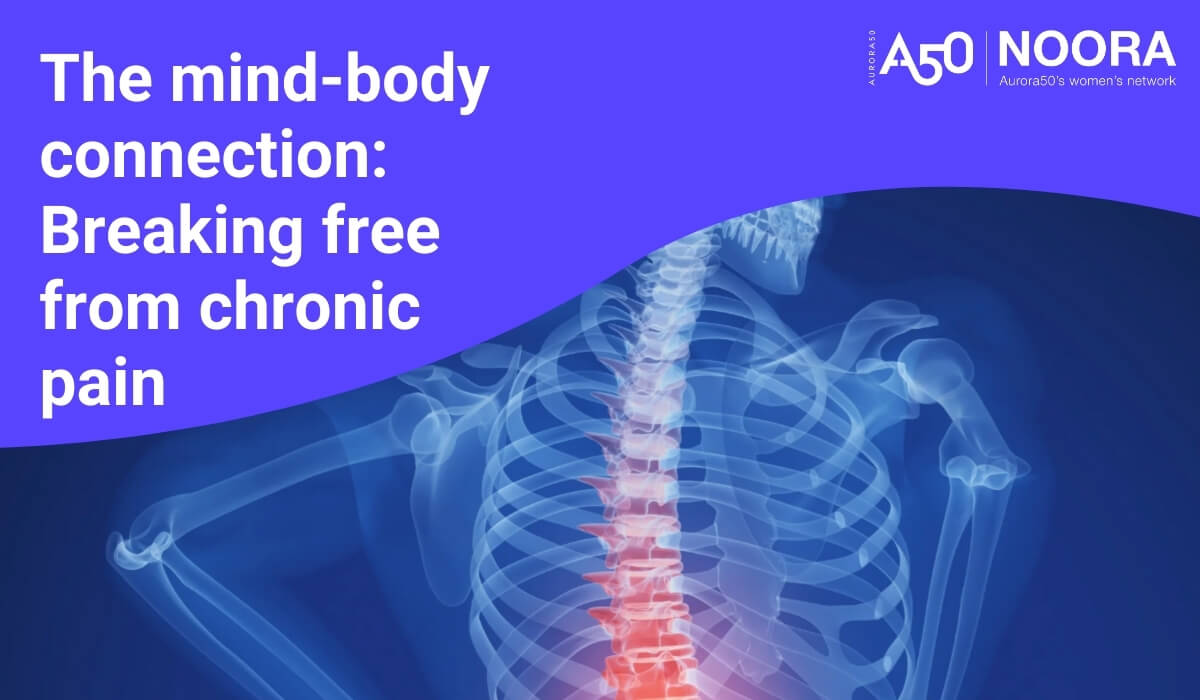
Gemma McFall of Recovery Lab, the first Pain Reprocessing Therapist in the Middle East, recently shared with NOORA members how anxiety, stress and chronic pain are connected – and how understanding this can help you recover.
Ms McFall was herself an HR director who suffered debilitating back pain for a decade; she discovered the mind-body approach to pain recovery just before undergoing spinal surgery, resolved her back pain in three months and decided to retrain as a result.
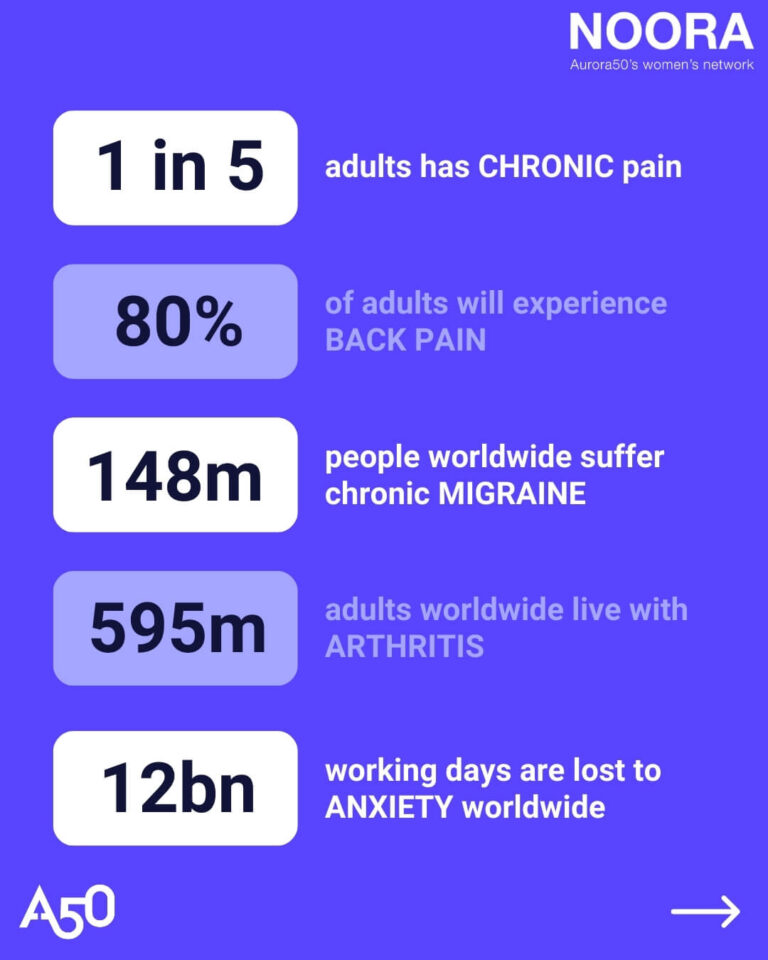
The facts are eye-opening:
For busy professionals, especially women juggling many roles, chronic pain adds another challenge to an already full schedule.
As Ms McFall says, “The pressure of accomplishing and delivering when we have so many roles as women… it’s a lot to balance and it’s very difficult to manage when you’re not feeling well.
“You have to be Superwoman at work, Superwoman at home and then Superwoman on the weekend. Then with chronic pain too, you have to put this brave face on, which is exhausting.”
The biggest discovery in pain science is simple but life-changing: “all pain is created in the brain,” says Ms McFall. This doesn’t mean your pain isn’t real – it absolutely is real – but knowing where it comes from changes how we treat it.
Ms McFall explains that chronic pain (any pain lasting more than three months) is a “learned response”. Just as after learning to ride a bike, we never forget how to ride, “for some people pain and anxiety is the same learned response”.
“The good news is that if we can learn to have pain, it’s a neural pathway,” she adds. “Because of the brain’s neuroplasticity (the brain’s ability to adapt and change its structure and function”, we can ‘unlearn’ pain by creating new neural pathways.”
Importantly, Ms McFall stresses that you need to rule out acute injuries before beginning pain reprocessing therapy (PRT) and that life-threatening conditions – such as cancer, autoimmune disorders and infections – need to have been ruled out by a healthcare professional.
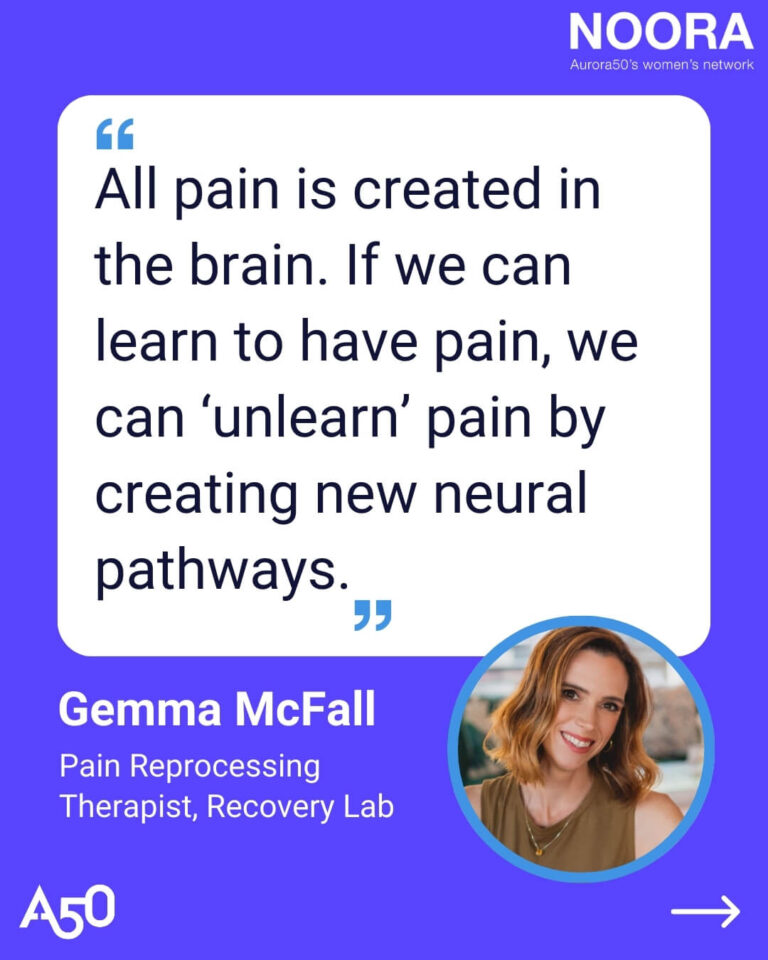
At the core of chronic pain is what experts call the ‘pain-fear cycle’. Pain causes fear, which then causes more pain, creating a loop that’s hard to break.
This is how stress, anxiety and pain are linked. While some stress is normal and even helpful – “we need some level of stress in order to drive us,” says Ms McFall -problems start when stress doesn’t go away.
“Ongoing stress becomes chronic stress and then chronic stress very quickly turns into anxiety,” she adds. “It’s not about the here and now, it’s ruminating thoughts – ongoing panic about the future or regret or shame from the past.”
For many busy people, feeling anxious seems impossible to manage. “We cannot afford to feel anxiety,” Ms McFall says. “So instead we may get physical pain.”
This happens without us knowing it: our brain finds it easier to create physical pain than to deal with difficult feelings.
Not everyone who feels stress develops chronic pain. Certain types of people are more likely to get it, says Ms McFall, including “high achievers, highly responsible, big empaths, very analytical people, people that tend to overthink a lot.”
Sound like you? These are the same traits that make someone successful at work.
“These high-stress personality types are amazing in the corporate world. But they are also the type of personality traits that are going to fuel that fear cycle,” Ms McFall explains.
The drive for perfection that helps you excel at work may be the same thing keeping you in pain. High achievers are used to fixing problems through hard work, says Ms McFall, so when pain continues despite their efforts, they get frustrated and then they over-think – making the pain-fear cycle stronger.
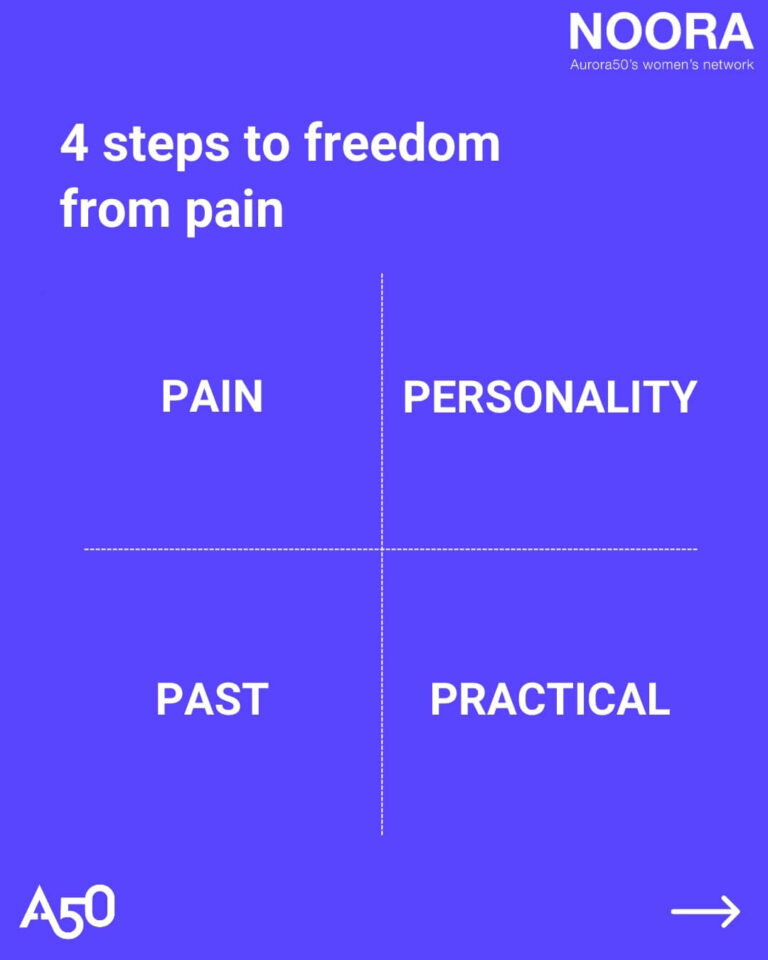
Ms McFall shares a ‘freedom from pain’ model with four steps:
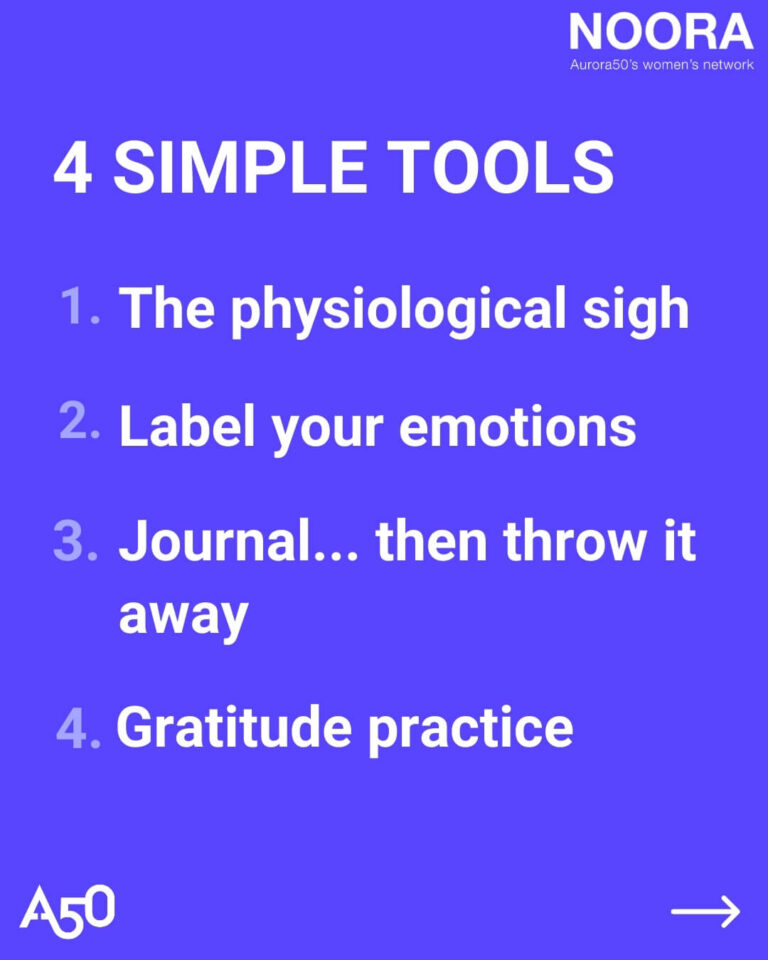
For busy people with packed schedules, Ms McFall offers quick techniques you can use anywhere:
When pain strikes, you have a choice, says Ms McFall. “We’re trying to train your brain, as it’s the brain creating this signal. You don’t always need to be scared of pain.”
By continuing normal activities when it’s safe to do so, you tell your brain there’s no danger, gradually retraining your pain response, she adds.
In a 2023 study of pain reprocessing therapy reported in JAMA Network’s open-access medical journal, 151 adults aged 21-70 who had chronic back pain for an average of 10 years were given either pain reprocessing therapy for eight weeks or a placebo (saline water injections).
Some 66 percent of participants reported being pain-free or nearly pain-free after pain reprocessing therapy, compared with 20 percent of people who received the placebo.
For professionals managing busy careers and chronic pain, this research offers hope. Understanding your brain’s role in creating pain helps you take back control, reduce suffering, and reclaim your time and energy.
As McFall shares from her own experience: “I was so mad that I lost years and years of my life because nobody told me about this. Now there’s a lot we can do about it.”
For more information or to take a quick quiz to see if your pain might be brain-based, visit gemmamcfall.com.
NOORA is the Aurora50 community for talented and ambitious corporate women in the GCC who lead with impact. You can purchase a corporate package or buy membership as an individual. Find out more at aurora50.com/noora.

Some of the comments the outgoing New Zealand prime minister has made that show she is an inclusive leader.
![[Aurora50 template] Dena Almansoori, group CHRO of Etisalat and founder/ CEO of WhiteBox HR [Aurora50 template] Dena Almansoori, group CHRO of Etisalat and founder/ CEO of WhiteBox HR](https://aurora50.com/wp-content/uploads/2021/08/002_DenaAlmansoori.jpg)
The group CHRO of Etisalat and founder/ CEO of WhiteBox HR on self-advocacy, a multicultural upbringing and her inspiring grandmother
![[Aurora50 template] Sara Nooruddin, head of private investments at Osool Asset Management and board director of Aegila Capital Management, Amanat Holdings and the Royal Hospital for Women and Children (RHWC) in Bahrain [Aurora50 template] Sara Nooruddin, head of private investments at Osool Asset Management and board director of Aegila Capital Management, Amanat Holdings and the Royal Hospital for Women and Children (RHWC) in Bahrain](https://aurora50.com/wp-content/uploads/2021/11/002_Sara.jpg)
Sara Nooruddin, head of private investments at Osool Asset Management and board director of Aegila Capital Management, Amanat Holdings and the Royal Hospital for Women and Children (RHWC) in Bahrain, on her path to company boards.

